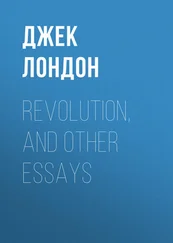Guy Thorne - I Believe and other essays
Здесь есть возможность читать онлайн «Guy Thorne - I Believe and other essays» — ознакомительный отрывок электронной книги совершенно бесплатно, а после прочтения отрывка купить полную версию. В некоторых случаях можно слушать аудио, скачать через торрент в формате fb2 и присутствует краткое содержание. Жанр: foreign_prose, на английском языке. Описание произведения, (предисловие) а так же отзывы посетителей доступны на портале библиотеки ЛибКат.
- Название:I Believe and other essays
- Автор:
- Жанр:
- Год:неизвестен
- ISBN:нет данных
- Рейтинг книги:3 / 5. Голосов: 1
-
Избранное:Добавить в избранное
- Отзывы:
-
Ваша оценка:
- 60
- 1
- 2
- 3
- 4
- 5
I Believe and other essays: краткое содержание, описание и аннотация
Предлагаем к чтению аннотацию, описание, краткое содержание или предисловие (зависит от того, что написал сам автор книги «I Believe and other essays»). Если вы не нашли необходимую информацию о книге — напишите в комментариях, мы постараемся отыскать её.
I Believe and other essays — читать онлайн ознакомительный отрывок
Ниже представлен текст книги, разбитый по страницам. Система сохранения места последней прочитанной страницы, позволяет с удобством читать онлайн бесплатно книгу «I Believe and other essays», без необходимости каждый раз заново искать на чём Вы остановились. Поставьте закладку, и сможете в любой момент перейти на страницу, на которой закончили чтение.
Интервал:
Закладка:
“For my part I do not think that you will ever rouse England to this question of home and children by an appeal to patriotism. The Englishman has become too cosmopolitan for that, and I am afraid the feeling is growing.
“The reason for the decline in America is said to be that women are becoming neurotic, and will not face the dangers and responsibilities of motherhood. No doubt that is true to a certain extent here also, and it is quite certain that among intellectual and highly-educated women, such as are trained at our universities in increasing numbers, the maternal instinct, the capacity for love, if you like to put it in that way, is apt to be destroyed.
“Then, among the middle classes thousands of young women, who not many years ago would have looked to marriage as their natural career, are earning their own livings, and are less eager to rush into matrimony.”
I have taken these extracts from the words of a few people crying in the wilderness. All of the dicta are at least eighteen months old. I am writing now, in November 1906, and three days ago the apparently inevitable paragraph again made its appearance: —
“RECORD LOW BIRTH-RATE.
“The births registered in England and Wales during the three months ended September 30 – 234,624, or 26·9 per 1,000 of the population – was the lowest rate recorded in any third quarter since civil registration was established.
“The average in the same quarters of the past ten years was 28·8.”
These opinions as to the reasons for the terrible decadence of England are doubtless all true. They are all contributory causes, and I do not think we can put a single one of them aside. Nothing could be more dismal or more hopeless reading. As one goes on, one experiences a sense as of a chill, deepening shadow.
Few people who read will be able to adopt the average man’s attitude towards unpleasant and disturbing matters – to sidle by with a deprecatory shrug of the shoulders.
Where then do we stand?
So far I have endeavoured to show ( a ) the entire indifference of the ordinary man and woman to the fall in the birth-rate; ( b ) the only light, in which, as I understand it, one can see the problem as a whole – in the light of the Incarnation; ( c ) the fact that the Christian Sociologist to-day is inclined to condemn the theory that the limitation of population is necessary at all, even by legitimate methods of abstinence and control; ( d ) the varied reasons which, in the opinion of those who have studied the question deeply, contribute to the one central and shocking fact —
That incredible numbers of English men and women many of them professing themselves Christians, are constantly using methods to prevent the birth of children.
Every parish clergyman in England is perfectly aware of what is going on. Every Nonconformist minister, and indeed every one whose work brings him in touch with large masses of people in the capacities of leader, adviser, or friend, knows it also. Just as the figures of the Registrar General form a gauge by which to measure the generality of the malignant influence, so the personal experience of any man of the world will supply particular evidence of the state of things within his immediate purview and surroundings.
Always remembering that the evil is progressive, is hourly increasing, the observer of social phenomena at once asks himself if there is not some definite and organized control and direction of it. The desire to obtain the gratifications of passion while evading its responsibilities is, perhaps, the strongest feeling implanted in the fallen nature of mankind. This is sufficient to create a demand for knowledge of how to obtain the desired end, and the demand has in its turn created the supply.
There is a definite literature upon the subject, there is a large body of highly-trained and cultured men and women ready and anxious to disseminate the necessary information to produce these results.
I propose to deal briefly, in the first instance, with the literature which urges and explains practices which the laws of God, the laws of Nature, and the teachings of the Church utterly and emphatically condemn.
The people who call themselves “Malthusians” (and to avoid an injustice to the memory of Malthus I shall here style them Neo-Malthusians) have an organ of their own in the shape of a periodical which is the official voice of a league into which they have formed themselves. The periodical has, I believe, an extensive circulation, and it is published at the lowest possible price. Moreover, in each number of it which I have seen the following notice appears: —
“The Secretary of the Malthusian League will be glad to send copies of back numbers of this journal to friends willing to distribute them for propagandist purposes.”
We see that an ordered press campaign is in progress. This periodical is most ably written and edited. Signed articles appear in it by men and women of standing and position. I find it impossible to doubt for a moment that these economists and scientists are not absolutely sincere, and actuated by a high and laudable desire to benefit the world in which they live.
It is unnecessary to give the title of the periodical, but immediately beneath it the following sentence is printed in large letters —
Here is the raison d’être of the journal plainly stated, and so far it is no more than indicating the precise aim of Malthus – to find an economic remedy for the sufferings of poverty.
I proceed to give some examples of the teaching inculcated in the journal, and in the first place quote from a review of L’Instinct d’Amour , by Dr. Joanny Roux, a very distinguished French physician: —
“Must all who refuse to procreate refrain from love? How easy it is to clothe one’s self in the robes of social purity when replying to this question! The social purists tell the world that chastity is obligatory if procreation be not intended. It is impossible to carry out this view. The philosopher contents himself with studying sterile love and its consequences. He rejoices to think that thousands of infants are left out of the world who would have been doomed to suffer. The inconveniences resulting from some selfish people who refrain from parentage are as nothing in the balance when weighed against the horrors of indigence.
“Should we not, by acting thus, lead to a progressive diminution of the population? Certainly; but that would be a good thing. As if, forsooth, human progress depended on quantity, and not on quality! Take China as an example of quantity without quality. Some writers seem to wish that the earth should be filled up with miserable and suffering people. Malthus, that gentle clergyman, in 1798, was the first to protest against such a view. Over-reproduction, he showed, was the cause of poverty. He, however, thought the only remedy for this was chastity, and was quite opposed to sterile love .
“To accept sterile love, some say, is to run counter to Nature and natural morality. ‘No,’ says Dr. Roux, ‘it is the preserving of these laws. In all cases where we construct houses or warm ourselves, we get one law of Nature to defend us against the other which injures us. We must not forget that our instincts are fixed customs of very ancient date; and there can be no doubt that man has the right to intervene in questions of that sexual instinct if morality ( i. e. happiness) requires it of him.’”
When one reads these passages a flood of light as to the real influence and direction of such teachings comes to us at once. The writer, no doubt sincerely enough, assumes as an axiom of his whole position, that there is no law but “Nature,” no morality but what he calls “Natural Morality.” We are, in fact, under no obligations to anything but the promptings of animal instinct which are part of our human nature.
Читать дальшеИнтервал:
Закладка:
Похожие книги на «I Believe and other essays»
Представляем Вашему вниманию похожие книги на «I Believe and other essays» списком для выбора. Мы отобрали схожую по названию и смыслу литературу в надежде предоставить читателям больше вариантов отыскать новые, интересные, ещё непрочитанные произведения.
Обсуждение, отзывы о книге «I Believe and other essays» и просто собственные мнения читателей. Оставьте ваши комментарии, напишите, что Вы думаете о произведении, его смысле или главных героях. Укажите что конкретно понравилось, а что нет, и почему Вы так считаете.












